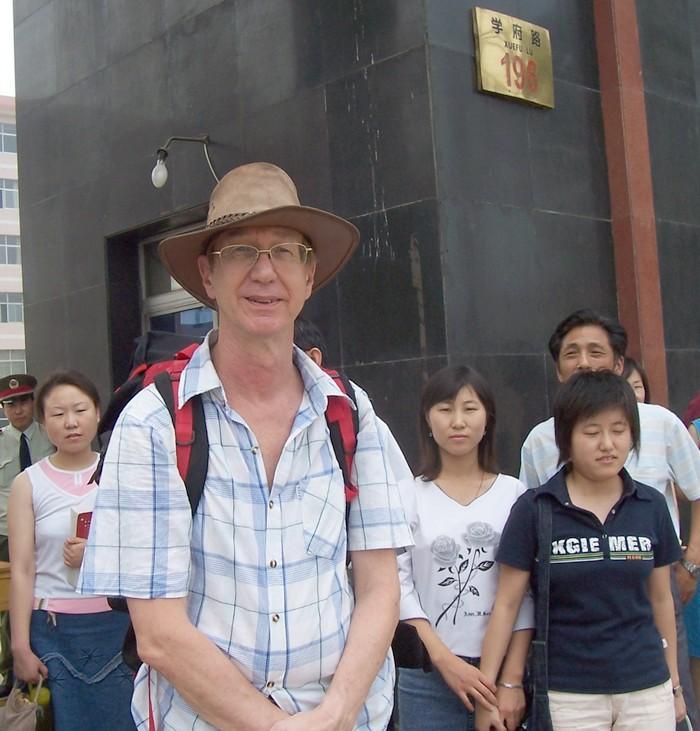| China's Gini coefficient is higher than all developed countries | |
|---|---|
| Feb 21, 2008 22:10 | |
 | are you drunk? i am talking about wealth distribution. he he |
| Feb 21, 2008 22:18 | |
 | u can say that, anyway 1.3 billion is the big issue. the sliced cake has nothing left for me. it's a complicated issue, i am out of source. |
| Feb 21, 2008 22:41 | |
 | Marrie....You sound frustrated ,are you doing O.K.? |
| Feb 23, 2008 23:39 | |
 | Jimmy, you said "If this issue can't be solved appropriately, other serious problems will emerge very soon." Several months back, Greenspan the retired head of the US Reserve bank made a very similar comment while in Hong Kong. This was censored and not reported in China. On HK TV it was reported and here in Guangdong I heard his comments in teh first edition of the news, but for later editions a part of an advertisement overplayed that part of his speech. |
| Feb 24, 2008 19:58 | |
 | I'm trying to find the article you're referring to on the internet but without any luck. Most information is relating tro the 98-99? visit to Hong Kong. |
| Feb 24, 2008 22:09 | |
 | Paul, Greenspan commented on overheated cn stock mkt last year - tripled last year, and recent sharp slip down just wipes off part of margin that they gained last year. bloomberg news: Greenspan's China-Stock `Contraction' May Not Spread (Update6) By Simon Kennedy and Scott Lanman May 30 (Bloomberg) -- Even if former Federal Reserve Chairman Alan Greenspan is right, the ``dramatic contraction'' he predicts for Chinese stocks isn't likely to infect the international economy. That's the conclusion of a number of international economists and former government officials around the globe. They say China's economy shows little correlation with its stock market, foreigners are mostly excluded from owning shares and Chinese participation is limited to less than 10 percent of the population, reducing the effect of a bursting bubble. ``This is a relatively small casino,'' said Edwin Truman, a former director of the Federal Reserve's international finance division and now a senior fellow at the Peterson Institute for International Economics in Washington. ``Even the implications for the Chinese economy should be minor.'' |
| Feb 24, 2008 22:11 | |
 | The CSI 300 Index, China's benchmark, today fell 6.8 percent, the most in three months, after the government tripled the stamp tax on stock trading to 0.3 percent from 0.1 percent. Until today the index had more than doubled this year and its stocks traded at 48 times earnings, almost three times the multiple for those in the U.S. Dow Jones Industrial Average. U.S. stocks surged to a record today and European shares recouped early declines sparked by the sell-off in China. The Standard and Poor's 500 Index, a benchmark for U.S. companies with a median market value of $14 billion, rose 0.8 percent to 1530.23, eclipsing its March 2000 record close of 1527.46. The 30-stock Dow average added 0.8 percent to 13,633.08, its 25th high this year. The Euro Stoxx 50, a measure for the 13 nations sharing the euro, slipped 0.1 percent after falling as much as 1.1 percent. |
| Feb 24, 2008 22:12 | |
 | `Clearly Unsustainable' Greenspan's May 23 comment that the climb in stocks is ``clearly unsustainable'' echoed a comment by Li Ka-shing, Asia's richest man, that the market ``must be a bubble.'' People's Bank of China Governor Zhou Xiaochuan expressed a similar concern two weeks earlier. Greenspan wasn't immediately available for comment on today's slide in Chinese stocks. The biggest threat to growth at home and abroad might be psychological -- if a drop by stocks in the world's fastest growing economy prompts investors to retreat from risky assets, undermining markets elsewhere. A burst bubble usually means trouble for a nation's broader economy, as it was in the U.S. when technology stocks tanked in 2000. History suggests that isn't true in China. Between 2001 and the end of 2005, the then-benchmark Shanghai Composite Index fell by half even as gross domestic product grew about 46 percent. And while the economy is the world's fourth largest, its market accounts for just 4 percent of global value. |
| Feb 24, 2008 22:13 | |
 | `Tenuous Connection' ``The Chinese stock market has only a tenuous connection with the underlying real economy,'' said Harvard University professor Kenneth Rogoff, a former chief economist at the International Monetary Fund. China's limited domestic ownership means that if stocks do slump the effect on spending and the economy should be minimal, said Jonathan Anderson, chief Asia economist at UBS AG in Hong Kong. Total stock holdings in China account for just 25 percent of domestic wealth, and in Asia only Indonesia has a smaller market capitalization than China's 60 percent of GDP. ``The tradable equity market is still a very small part of wealth holdings in China,'' said Anderson, another former IMF economist. ``Even a significant domestic equity-market correction would have little or no impact on the rest of the mainland economy.'' Earnings Fuel Expansion Economists say another reason for confidence is that companies have fueled the economy's expansion mostly with earnings rather than using the booming equity market as a primary source of cash. Chinese companies last year earned combined profit of 1.88 trillion yuan, according to the statistics bureau, compared with total shares sales of 197 billion yuan. Ownership of Chinese shares in other economies is limited. China has capped foreign investment at an aggregate $10 billion in the yuan-denominated ``A'' shares, less than the market value of about 700 U.S.-listed companies. ``The world economy is not particularly exposed to share ownership in China,'' said Julian Jessop, chief international economist at Capital Economics Ltd. in London. That means the global economy will only suffer if China's economic expansion begins to ebb, which few see happening. |
| Feb 24, 2008 22:14 | |
 | While the Paris-based Organization for Economic Cooperation and Development last week echoed concern about the level of China's stocks, it maintained its forecast for more than 10 percent economic expansion this year and next, citing it as a key reason for why the world economy will remain robust. Staying Strong ``If the Chinese economy stays strong, a decline in its stock market isn't going to affect the rest of the world,'' said Alec Young, an international equity strategist at Standard & Poor's in New York. Such views haven't stopped China's authorities from being concerned about the potential fallout of an equity-market slump on shareholders who include monks, maids and cooks. Investors on May 28 opened 455,111 new accounts to trade mainland shares and mutual funds, bringing the tally to 100.3 million, the China Securities Depository & Clearing Corp. said on its Web site. More than 20 million accounts have been opened at brokerages so far this year, four times the amount in the whole of 2006, according to the clearing house. |
Post a Reply to: China's Gini coefficient is higher than all developed countries







 Copyright © 1998-2026 All rights reserved.
Copyright © 1998-2026 All rights reserved.